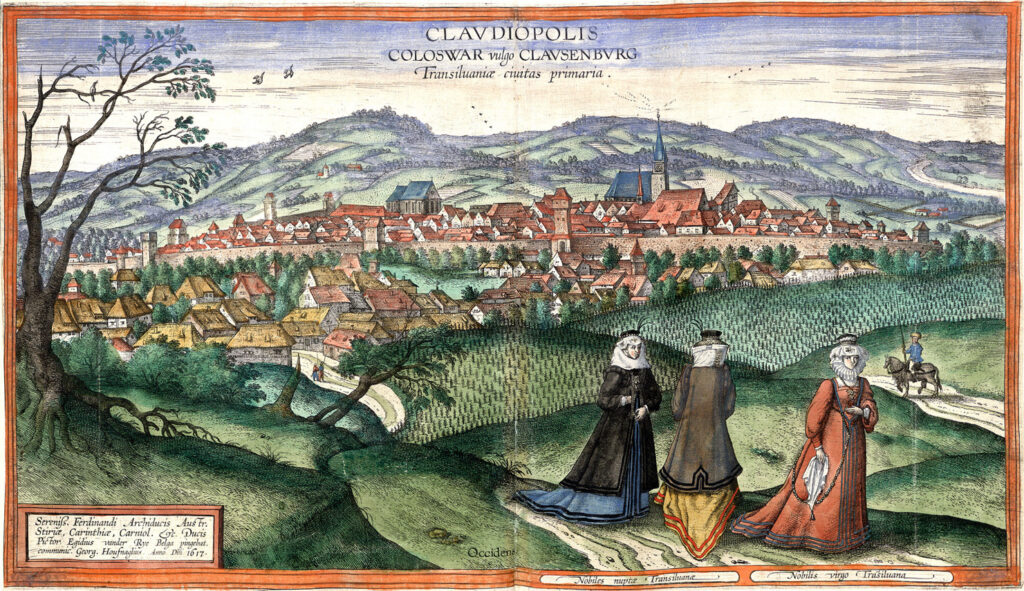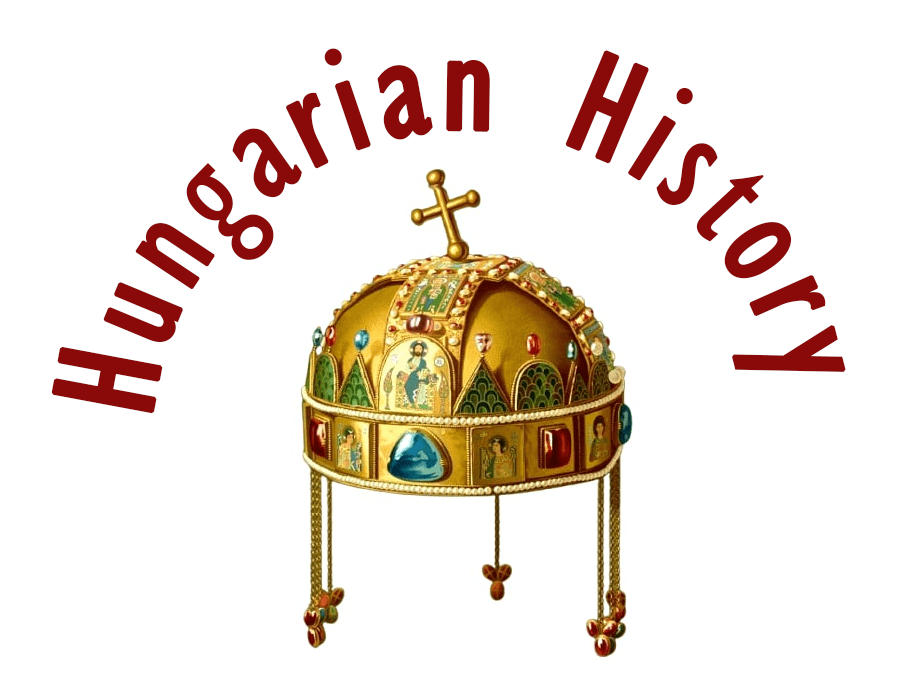God is One!
No contemporary image of him survived, this portrait is only how the later artists imagine how he should have looked like:
Of the world’s 7.6 billion people, about half a million identify as Unitarians. The church has its roots in the second half of the 16th century in Transylvania, which became a semi-independent state after much of Hungary was occupied by Ottoman armies. Today, the Unitarian Church is the smallest historic church in Transylvania (the other historic churches being the Catholic, Calvinist, and Lutheran churches), with about 65,000 members.
The Unitarian Church is the only “indigenous” church in Transylvania since it was born there, while the others were brought from outside. There are about 6,000 Unitarians in Hungary, mostly immigrants from Transylvania.
Transylvania in the second half of the 16th century
After the occupation of Buda by the Ottomans in 1541, the eastern part of the Hungarian Kingdom, namely Transylvania and the surrounding territories, gradually became the refuge of the Hungarian kings. This territory was called the Eastern Hungarian Kingdom until 1570 – the Treaty of Speyer – which marked the foundation of the Principality of Transylvania. For the survival of this remnant of Hungarian statehood, to which the Hungarian national kings retreated, it was essential to ensure internal peace and unity, although external influences made this increasingly difficult.
These external influences brought another source of conflict that could lead to internal strife and even fighting, further weakening the Hungarian state: the Reformation. Just as it led to a series of wars and atrocities in Europe (e.g. the St. Bartholomew’s Day Massacre, the Thirty Years’ War), it could have led to similar events in the Eastern Hungarian Kingdom, later the Principality of Transylvania, which would have made this state vulnerable to external enemies.
However, as we will see, such conflicts were prevented here by a law of religious tolerance that was unprecedented in the world at that time. This article is about the man who was its architect. In Transylvania, Lutheranism spread in the 1540s, followed shortly by Calvinism, and then, from the second half of the 1560s, by anti-Trinitarianism (Unitarianism). All this happened within twenty and a few years.
The relatively rapid and peaceful spread of the Reformation in Transylvania was due to the humanist Catholic church elite. The Catholic clergy was not hostile to the new ideas and books brought by merchants, students, scholars, and preachers.
The Unitarianism that emerged in Transylvania was rooted in evangelical rationalism. In addition to local reformers, the Spanish physician and theologian Michael Servetus (1511-1553), the humanist scholar Erasmus of Rotterdam (1466-1536) and the prominent humanists of the Italian emigration Valentino Gentile (1515-1566), Fausto (1539-1604) and Laelio Sozzini (1525-1562), Giorgio Biandrata (1515-1588) played a significant role in the development and spread of Unitarianism in Transylvania. The Unitarian denomination, which emerged in Transylvania as a radical branch of the Reformation, claims Ferenc Dávid (1520-1579) as its founder.
Ferenc Dávid’s early life
Franz Hertel, of Saxon nationality, was born in Kolozsvár (Cluj, Klausenburg) around 1520 and called himself Franciscus Davidis, or Ferenc Dávid, after his father’s first name, David. His father, a wealthy tailor, sent only one of his three sons to school, and that was Francis. He began his education in Kolozsvár and continued it in Gyulafehervár, at the Capitulary School.

He can be identified with the student Franciscus Colosvarius, who was registered in Brassó in 1545. He must have spent two years in Brassó because from 1548 to 1551 he was a student at the University of Wittenberg. He went to Wittenberg as a Catholic theology student, but there the spreading Lutheran Reformation made him adhere to the views of Martin Luther.
After his return to his homeland, now a supporter of the Reformation, he worked as a schoolmaster and preacher. In 1551 he worked in Beszterce, in 1552 in Petres, and from the end of the year in his native town. The increase of his prestige is confirmed by the fact that in 1555 he was elected priest by the Saxons in Kolozsvár.
It was at this time that he began his religious debates, in which he was almost unbeatable. His knowledge of the Bible was impeccable, and even his opponents admitted that he knew the Scriptures by heart. In the second half of the 1550s, in a series of polemical writings in Latin, he defended the Lutheran position against the Calvinist Christology of the Italian physician Francesco Stancaro (1501-1574). In recognition of this, he was elected bishop (superintendent) of the Hungarian Protestants in Transylvania in 1557. Regardless of their theological position, Ferenc Dávid was the bishop of all Hungarians living in Transylvania.
The conversion of most people in Transylvania from Catholicism to Protestantism did not happen by simply declaring that they were now Lutherans, but by gradually changing the life of the congregation. As early as the 1550s, the frescoes in St. Michael’s Church in Kolozsvár were torn down, the church treasures were thrown away, and sermons were preached in Hungarian and German instead of Latin.
At the end of the 1550s, Transylvania had two Protestant superintendencies organized on a territorial-national basis. One was for the Saxons, based in Nagyszeben (Sibiu), and the other for the Hungarians, based in Kolozsvár, regardless of which branch of the Reformation they had adopted.
By 1559, Dávid had come under the influence of the Helvetic Reformation (Calvinism), rejected his earlier Lutheran stance, and resigned his position as superintendent, but the community re-elected him and the majority accepted the Calvinist faith. In the second half of the 1560s, the Protestants of Transylvania argued over the question of the Trinity. Under the influence of Giorgio Biandrata, who became the Italian court physician and diplomat of King John the Second (or John Sigismund) in 1563, Ferenc Dávid gradually turned against his former beliefs and became anti-Trinitarian.

Unitarianism
Even in the early days of the Reformation, some writers criticized the doctrine of the Trinity adopted at the Councils of Nicaea (325) and Constantinople (381). The most prominent 16th-century critic of the doctrine was the Spanish physician and theologian Michael Servetus, who demonstrated its untenability in his 1531 work De trinitatis erroribus (On the Inerrancy of the Trinity).

Servetus’ work reached Transylvania via Biandrata, and the anti-Trinitarians (Unitarians), who gradually broke away from Calvinist beliefs, drew their arguments against the Trinity from the Spanish thinker’s major work, Restitutio Christianismi (The Restoration of Christianity), published in 1553.
At the end of the sixties, Servet’s Christology, influenced by Platonic speculations, was combined with the Christology of Lelio Sozzini. The essence of this is that the Logos of John’s Gospel is merely a metaphorical name for the man Jesus, born of Mary, who did not exist before and therefore is not the second person of the Trinity, but a man conceived by the Holy Spirit and endowed with divine gifts. This Unitarian position clashed with the Trinitarian view in the public debates presided over by King John II, which took place in Torda, Gyulafehérvár, Marosvásárhely, Nagyvárad, etc. between 1566 and 1571.
The public debate about the unity or trinity of God was held for the first time at the synod of Gyulafehérvár from 24 to 27 April 1566. Here Ferenc Dávid and his companions rejected scholastic terms such as “essence, substance, person, nature” of the concept of God, because they, as the anti-Trinitarians argued, had no biblical basis.

Biandrata, Ferenc Dávid in the 1560s, Faustus Sozinus or Michael Servetus, executed in Geneva in 1553, all argued that the traditional Christology of Christ having both a human and a divine nature had no basis in the Bible. They said that He was born as a man with the task of bringing salvation to mankind, accepted to be sacrificed, died on the cross, and rose again in the flesh, and because He did His task well, God gave Him a divine nature: thus He is God not “ex natura” but “ex officio. In the end, Dávid and his companions won the debate with the Trinitarians. But in the end, they had to promise to refrain from any further innovations in the explanation of the biblical text.
The agreement could not be kept and years of public disputes followed. The next religious debate began in Gyulafehérvár on March 8, 1568, and lasted ten days. In 1569 a debate was held in Nagyvárad in the Hungarian language. The literary adaptation of this dispute is Debreceni Disputa / Válaszúti komédia (The Debrecen Dispute / The Válaszút Comedy).
Ferenc Dávid, as a court preacher and a unique charismatic personality, had a great influence on the young monarch John Sigismund, who in 1568 became the first Unitarian ruler in history and converted to Unitarianism in 1568.
The decree about the Freedom of Religion

On January 13, 1568, the Diet of Torda, following the decrees of previous diets, declared – for the first time in Europe – freedom of religion and conscience!
The text of this decree is as follows:
“His Majesty, our Lord, in whatever manner he – together with his realm [i.e. the Diet] – legislated in the matter of religion at the previous Diets, in the same manner now, in this Diet, he reaffirms that in every place the preachers shall preach and explain the Gospel, each according to his understanding of it, and if the congregation like it, well, if not, no one shall compel them, for their souls would not be satisfied, but they shall be permitted to keep a preacher whose teaching they approve. Therefore, none of the superintendents or others shall abuse the preachers, no one shall be reviled by anyone for his religion, according to the previous statutes, and it is not permitted that anyone should threaten another with imprisonment or removal from his post because of his teaching, for faith is the gift of God, it comes from hearing, and hearing is through the word of God.”
There can be no doubt that Ferenc Dávid, the king’s court preacher, the obsessed, selfless seeker of truth, was the author of this decree, which was so in keeping with his personality. According to the decision of the Diet of Torda, communities were free to choose the religious denomination closest to their souls. And the preachers were free to preach the doctrine that was closest to their faith, on the whole territory of Transylvania. All this was guaranteed by a law that ensured freedom of religion and conscience in Transylvania for centuries to come. In Europe, a similar law was enacted more than 200 years later. Only the French Revolution of 1789 introduced a similar law.
The decision of the Diet of Torda is wrongly compared to the decision of the Peace of Augsburg. While the latter established the principle of “cuius regio eius religio” (he who rules, determines the religion), according to which the ruler of a kingdom or duchy could determine the faith of his subjects and banish those who did not wish to accept it, in Transylvania the followers of the Catholic Church and the various Protestant denominations were free to practice their faith, and the Diet could not pass a law with which they did not agree.
According to the tradition, Ferenc Dávid stood on this stone in 1568 and gave a speech that made the people of Kolozsvár Unitarian:

On the one hand, this decision guaranteed the state recognition of Unitarianism and the establishment of the Unitarian Church, and on the other hand, thanks to the tolerant religious policy of John II, it allowed the theologians who had been persecuted in Western Europe for denying the Trinity to find refuge in Transylvania. Many of these theologians were Sabbatarians, such as Johann Sommer (1542-1574), Jacobus Palaeologus (1520-1585), Matthias Vehe-Glirius (1545-1590), Christian Francken (1550-1610).
The decree of January 13, 1568, also regulated the duties of the bishop. As mentioned above, during the 16th century (until 1640) Hungarians, regardless of their denomination, had only one bishop. This was Ferenc Dávid. The decree of 1568 forbade the bishop to interfere in the religious life and beliefs of the local communities. The bishop’s only duty was to punish the drunkard, the thief, or the promiscuous priest, and to use ecclesiastical means to put the “deviant in abomination” on the right path.
Only when this failed did he have the right to call in the secular authorities to punish them according to the customs of the state system. This decree ensured the freedom of the very diverse religious life of the people of Transylvania.
Due to the changed political conditions after the death of King John the 2nd (from 1570 Transylvanian Prince John Sigismund), the Unitarian Church was forced to organize an independent church structure in 1576. Its synodical-consistorial communities, organized on the model of the Protestant church constitution, formed 13 congregations led by elected deans. The church was led by a bishop elected by the synod and administered by pastors. The liturgical life was not uniform, the pastors used the Scriptures translated by the Unitarian writer and typographer Gáspár Heltai, but in the mid-1570s there was a wide divergence of opinion on rites such as baptism and communion.

From the very beginning, Unitarianism had taken up the cause of education and training, and culture in general, and supported it generously through its wealthy members. In addition to the smaller schools of the denomination, there were higher schools in Torda, Gyulafehervár, Dés, Marosvásárhely, and Nagyenyed, and a seminary in Kolozsvár. Through its teachers, the Theological Seminary of Kolozsvár (the Old Town School) became one of the most important theological and philosophical workshops not only in Transylvania but also in Central and Eastern Europe.
Dávid’s turn to the nonadorantist Unitarianism and his death
As mentioned above, thanks to the Law of Religious Freedom, many Unitarian and Sabbatarian theologians took refuge in Transylvania, where they began to spread their teachings. Ferenc Dávid, who was open to all opinions, was interested in their views and began discussions with them. Especially with the Hebrew expert Johann Sommer and with Jacobus Paleologus.
Jacobus Paleologus was a descendant of a Byzantine imperial dynasty, a former Dominican monk who became a supporter of the extreme Reformation and taught in Kolozsvár in the 1560s and 70s. He was in virtual hiding in Transylvania at the time, persecuted for his beliefs in the rest of Europe.
Paleologus argued that since Jesus Christ was not accepted as the Messiah by the Jews, God extended salvation to everyone, Jews, Christians, and Muslims alike. According to him, the only reason the three Abrahamic religions are not united is because Christians believe in the divinity of Christ. If Christ were considered human, the three religions would be united and the Messianic work would be completed.
In the mid-1570s, under the influence of these European theologians, Dávid reevaluated his Christology and became a proponent of the so-called nonadorantist view, which did not recognize the divinity of Jesus and taught that he should not be worshiped or invoked. At the same time, Dávid also rejected the practice of infant baptism.
After the death of Prince John Sigismund in 1571, members of the Catholic Báthory family succeeded each other on the Transylvanian throne. After Stephen (1571-1576), came his brother Christopher (1576-1581), and then, with some interruptions, his son Sigismund (1588-1601).

The family’s religious policy favored the strengthening of the Catholic Church. Although István Báthory did not use violence against the Unitarians, a series of measures he took after his election as prince weakened their position. The most serious were the censorship of religious works and the Innovation Law of 1572. This law forbade any changes or innovations in the religious, biblical, or ecclesiastical customs and traditions accepted in Transylvania until 1571. This eventually led to the tragedy of Ferenc Dávid.
In March 1579, Dávid called a synod in Torda, where the council accepted his clear Unitarian views: Christ was a man, conceived by the Holy Spirit, but born as a man; he was the Messiah, made the ultimate sacrifice, rose again, and sits at the right hand of the Father until the final judgment when he will judge the living and the dead. But he is not to be worshiped, nor is he to be invoked in prayer, for this would diminish the unity of the Father.
Dávid’s colleague, Giorgio Biandrata, thought that Dávid had made a fatal mistake in bringing to the Synod his new views, which followed the ideas of Sommer and especially those of Palaeologus. The Italian physician and politician, who was a supporter of the worship of Christ, believed that Dávid had endangered the hard-won unity of the Unitarians, and so he tried to bring his former comrade back to the creeds of 1571 by inviting Fausto Sozzini to Transylvania.

After that, Dávid and Sozzini debated for over a month in the parish hall of the main square of Kolozsvár. During the debate, Bishop Ferenc Dávid suffered a stroke but did not give up his position. As a result, Biandrata accused Ferenc Dávid of violating the law of innovation before Prince Kristóf Báthory. The case was brought before the Diet of Gyulafehérvár, where on June 3, 1579, the seriously ill bishop was sentenced to the dungeon for religious innovation and imprisoned in the castle of Déva, where he died on November 7, 1579.
According to a tradition questioned by some, before his death he wrote with his blood on the wall of his prison cell: “The sword of the pope, the cross or the fear of death, nothing will stop the truth. I have written what I have always believed, and I believe that the doctrines of the false preachers will crumble after my death.”
Despite his condemnation and death, as well as the efforts of Biandrata and the Prince, the Unitarians of Transylvania adopted the Non-Adorantist views, which they profess to this day.
Did Dávid become a Sabbatarian?
In the past, some religious historians saw Ferenc Dávid as one of the ideologues of Sabbatarianism or Judaizers, the last and most radical branch of the Transylvanian Reformation, and the last phase of the Unitarian bishop’s work was associated by them with the so-called Sabbatarian movement.

It is undeniable that Dávid borrowed some ideas in his last treatises from the German-language work Mattaniah (The Knowledge of God), written by Matthias Vehe-Glirius, who taught at the College of Kolozsvár, which was the basic source for the Judaizers, but this does not mean that he identified himself with Sabbatarian practices, which in any case did not become established until after the 1620s.
According to Sabbatarians, Jesus did not change the laws of the Old Testament, and therefore God’s laws can only be known and interpreted based on the Old Testament, and believers must also observe the ritual laws of the Old Testament, except for circumcision. There is no credible record that Ferenc Dávid practiced Jewish rituals. Thus, Ferenc Dávid remained a Unitarian until his death, a creed for which he paid with his life.
Ferenc Dávid’s personality and importance
Ferenc Dávid was ready to take the idea of the Reformation, which proclaimed a return to the original truths of Jesus, to its extreme. He was uncompromising in this principle, because for him the most important thing was to find the truth, and so he boldly touched on some dogmas that had never been questioned before. That is why he considered freedom of religion and conscience so important because we can only restore the original, unadulterated truth of Jesus if we are free to seek the original truth, find it, and proclaim it without fear of prohibition or repercussions.
Any restrictions on this will only delay the discovery of the ultimate truth. This led to the proclamation of freedom of religion and conscience. Ferenc Dávid was the only Hungarian founder of a religious denomination who was the architect of the world’s first law on religious freedom, which allowed his country, unlike the rest of Europe, to avoid becoming a land of sectarian wars and hatred. All this was the result of his unique personality, always searching for the truth and, when he thought he had found it, always ready to question it and, if convincing arguments were presented to him, to change it.
Starting from the imperfection of human existence, from the limitations of the human mind, he was convinced that divine truth is inaccessible to us and that the only way for us to approach it is through constant search. And as a result of this realization, he came to the historic decision to proclaim the need for a perpetual reform of religion.

Ferenc Dávid was a passionate rhetorician and at the same time a rigorous, critical thinker who constantly revised his ideas. And when he found something that convinced him that it was more true than his own beliefs, he did not hesitate to accept it. It was not his beliefs that were important, but the teaching that made him believe that it was the truth. That is why he changed his beliefs so many times during his life.
This kind of openness and lack of selfishness about his own beliefs is almost unique in the history of the world. But each time he decided to change his beliefs, he first resigned from any position he could no longer hold in good conscience in the light of his newly discovered truths, and only then began to proclaim his new views.
The Unitarian Church of Transylvania also holds a special place in the history of the European Reformation as a whole, since of all the traditional Unitarian congregations in Central and Eastern Europe, only the Unitarian Church of Transylvania has survived into the 21st century. Certainly, his uncompromising personality has played a large part in this success.
References: https://foter.ro/cikk/20180829_egy_az_isten_de_miert_pont_erdelyben/
https://www.e-nepujsag.ro/articles/david-ferenc-1520%E2%80%931579-elete-es-reformatori-munkassaga
Author of the article: Szilágyi Szilárd; edited by Szántai Gábor
Dear Readers, I can only make this content available through small donations or by selling my books or T-shirts:
Please, support me with a coffee here: https://www.buymeacoffee.com/duhoxoxa
You can check out my books on Amazon or Draft2Digital, they are available in hardcover, paperback, or ebook:
https://www.amazon.com/dp/198020490X or at https://books2read.com/b/boYd81

My work can also be followed and supported on Patreon: Become a Patron!http://Become a Patron!
Become a Patron! and donations can be sent by PayPal, too: https://shorturl.at/qrQR5


https://hungarianottomanwars.myspreadshop.com/all
Subscribe to my newsletter here: https://shorturl.a




